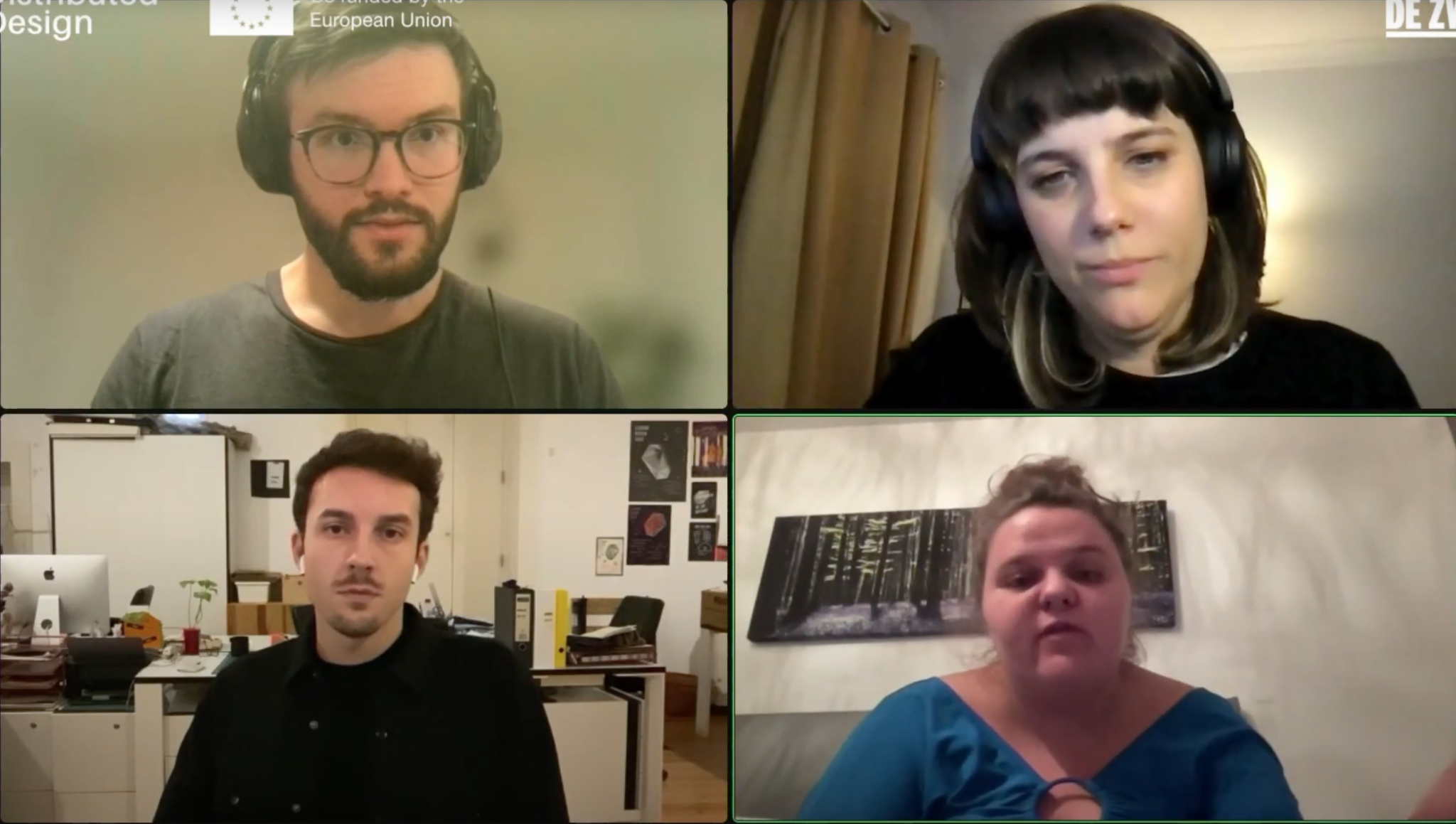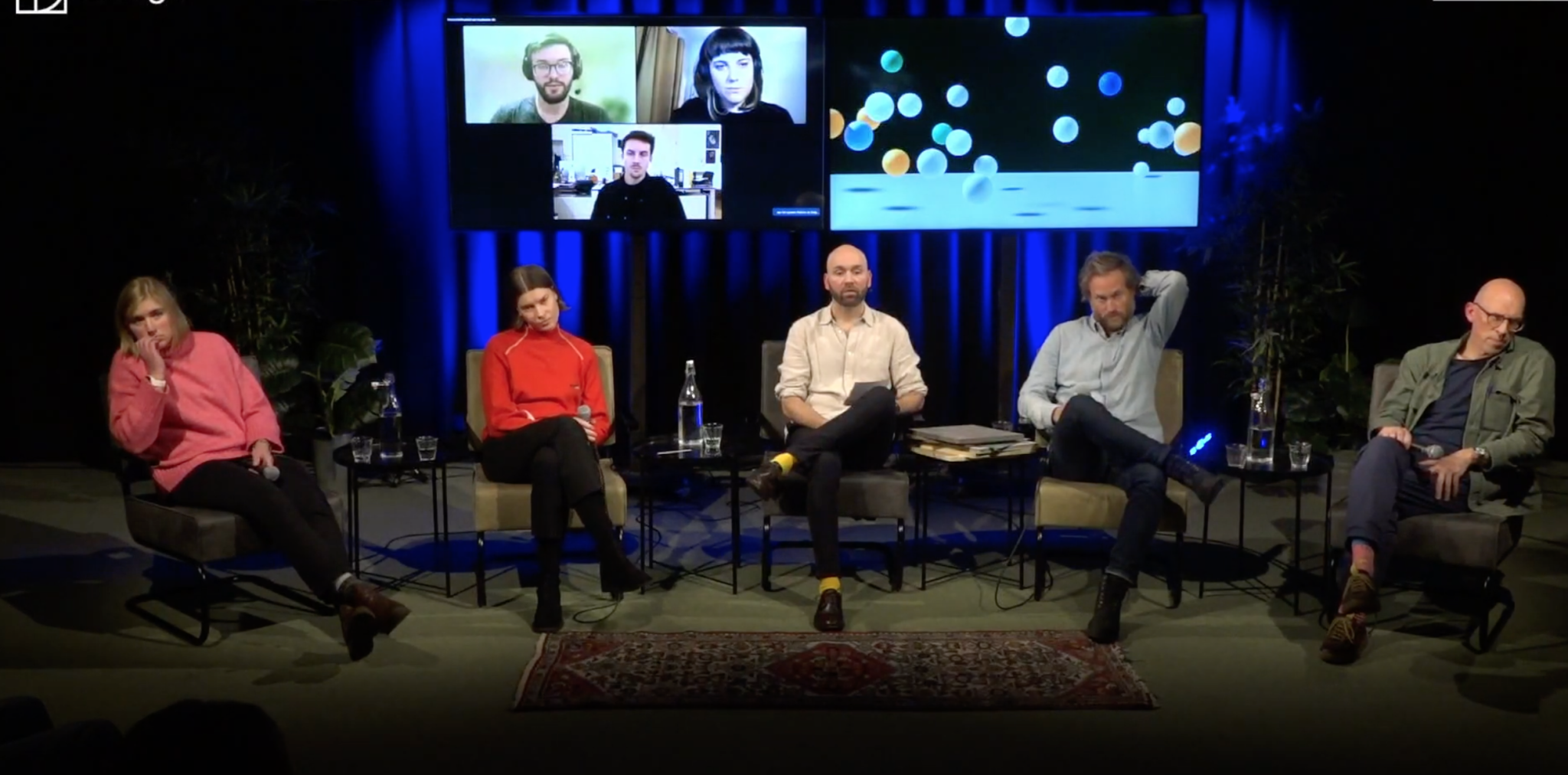“It is not easy to sell our products! I feel guilty shipping products to other countries! I am struggling to find investment for my research and innovation!” These are just a few among many insights that Distributed Design creative talents discussed in an online coffee meet-up in December 2023. While the challenges vary per person, they represent the struggles and dilemmas that distributed designers face. In this article, you can read more about the dialogue around this topic. Karim Asry, creative director at ‘Espacio Open’ also joined us to shed a light on the potential solutions and ideas being discussed.
Here you can read more about this year’s Distributed Design talents and their projects.

Challenges
- Loyalty to principles
Maintaining coherence with the distributed design principles and philosophy proved to be challenging. Balancing ethical considerations with practical constraints posed a real challenge for many designers. Making your business grow and selling more products, while at the same time standing for regeneration and circularity can be paradoxical. - Ethical dilemmas
Some designers expressed their feelings of guilt on sustainability matters. They mentioned the example of shipping their products internationally if their market grows. The clash between aspiring to create a brand and adherence to personal beliefs added another layer of complexity. - Financial difficulties
Finding investment sources for research and innovation was a common concern. Finding investors who share the same values and beliefs as the designers and are willing to invest in innovative products with new business models is a real challenge. - Knowledge
There is a strong desire to improve knowledge and skills through workshops and masterclasses about product-to-market strategies. - Work-life balance
The designers feel a responsibility to change the current system and make a change. Being the owner and creator of a new product/ project and dealing with the challenges already mentioned means that work is never done. This has proven to be challenging in maintaining a healthy work-life balance. Many designers found themselves consumed by work, blurring the boundaries between professional and personal life. - Communication and education
Communicating the essence of distributed design among different fields effectively was identified as an area needing improvement. Additionally, there was a consensus on the lack of knowledge and skills. - Systemic challenges
Designers acknowledged the difficulty of challenging the existing system. As a clear example, they mentioned the invisibility of the true costs of mass production and the absence of citizen lobbying for alternative solutions.

Solutions
In response to the previously mentioned challenges articulated by the creative talents, Karim Asry our special guest in the meeting, provided insightful reflections and potential solutions:
- Embrace non-binary solutions
Instead of seeking binary answers, embrace non-binary solutions which he defined as solutions that are flexible and adaptable to different contexts and constraints. - Ethical alignment
Stay true to your own values throughout your process. If you keep evaluating your own choices and practice along the way, a feeling of guilt is not necessary. We are still operating in an existing system, a product/ process does not have to be 100% ideal from day one. Adaptation is possible. A good way to handle this is to align commercial endeavors with personal ethics to foster a sense of integrity. - Understanding and utilizing systems
While recognizing the deficiencies of our current systems, a good way to effect meaningful change, is to understand the existing systems and leverage regulations in a smart way to drive positive outcomes. - Community building
It goes without saying that cultivating a supportive community can provide valuable resources and opportunities for collaboration and growth. - Hybrid Career Paths
Exploring hybrid career paths that blend traditional employment with freelance work or entrepreneurship can provide stability. - Making Future Design Visible
Finding innovative ways to make the future implications of design choices tangible and relevant in the present can inspire action and drive change.
In conclusion, the meeting with Distributed Design creative talents highlighted the multifaceted challenges in navigating the intersection of creativity, ethics, and commerce. However, the reflections and solutions shared by the designers and Karim Asry offer a roadmap for overcoming these challenges and moving towards a more sustainable and impactful future for distributed design.
On Monday, November 27th , Pakhuis de Zwijger organized an evening in collaboration with Distributed Design Designers and experts in the field discussed what is needed for design projects to overcome the obstacles and develop strategies to increase scale and impact. Watch back the program here!
This blogpost was also published on the website of Pakhuis de Zwijger.
